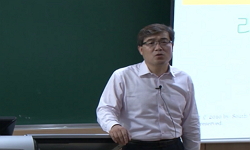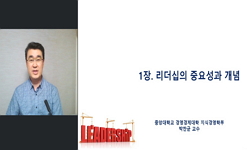우리나라는 국제 스포츠 경기에서도 우수한 성적을 거두며 엘리트 체육의 강국으로 도약했다. 하지만 그 이면에는 파벌, 폭력 코치, 성추행 파문 등 여러 불미스러운 일들이 종종 발생되고 ...
http://chineseinput.net/에서 pinyin(병음)방식으로 중국어를 변환할 수 있습니다.
변환된 중국어를 복사하여 사용하시면 됩니다.
- 中文 을 입력하시려면 zhongwen을 입력하시고 space를누르시면됩니다.
- 北京 을 입력하시려면 beijing을 입력하시고 space를 누르시면 됩니다.

스포츠 팀 지도자의 리더십이 팀 성과에 미치는 영향 : 팀 응집력과 팀 효능감의 매개효과를 중심으로 = The Mediating Effects of Team cohesion and Team Efficacy between Coach’s Leadership Styles and Team Performance
한글로보기https://www.riss.kr/link?id=A100652129
- 저자
- 발행기관
- 학술지명
- 권호사항
-
발행연도
2015
-
작성언어
-
- 주제어
-
KDC
324
-
등재정보
KCI등재후보
-
자료형태
학술저널
-
수록면
33-72(40쪽)
-
KCI 피인용횟수
14
- 제공처
-
0
상세조회 -
0
다운로드
부가정보
국문 초록 (Abstract)
우리나라는 국제 스포츠 경기에서도 우수한 성적을 거두며 엘리트 체육의 강국으로 도약했다. 하지만 그 이면에는 파벌, 폭력 코치, 성추행 파문 등 여러 불미스러운 일들이 종종 발생되고 있다. 우리나라의 경우 상하관계를 중시하는 유교사상을 바탕을 둔 권위적이고 지시적인 리더십이 주류를 이루고 있기 때문이다. 이와 같은 리더십에 대한 경향은 2002 월드컵 4강 신화를 이끌었던 거스 히딩크 감독의 등장으로 패러다임의 변화를 겪게 되었다. 본 연구는 우리나라 스포츠 계에서 리더십 패러다임의 변화가 진행되고 있다는 상황에서 등장한 여러 리더십 스타일의 효과성을 비교하고자 한다. 본 연구에서 다룬 네 가지 리더십은 거래적 리더십, 변혁적 리더십, 진성 리더십 그리고 슈퍼 리더십이다. 또한 본 연구는 리더십의 영향력을 설명할 수 있는 개념으로 종속변수인 팀 성과 외에도 팀 응집력과 팀 효능감을 매개변수로 보고 영향력을 검증하였다. 프로급 팀 스포츠 선수 461명을 대상으로 자료를 수집하여 분석한 결과, 팀 응집력에서는 진성 리더십이, 팀 효능감에서는 슈퍼 리더십이 가장 효과적인 리더십으로 판명되었다. 또한 이 두 리더십 스타일은 성과에서도 유의미한 직접적 효과를 나타냈다. 매개효과를 검증해본 결과팀 효능감은 진성 리더십과 슈퍼 리더십의 팀 성과에 대한 관계를 완전매개하며, 팀 응집력과 팀 효능감은 변혁적 리더십과 팀 성과와의 관계를 부분매개하는 것으로 나타났다. 또한 거래적 리더십의 경우 팀 효능감을 통해서 팀 성과를 부분 매개하는 것으로 밝혀졌다. 이러한 스포츠 팀의 경쟁력 강화를 위해 선수들의 효능감과 응집력 등 심리요인의 중요성을 강조하며, 이러한 심리요인을 형성하는 과정에서 강한 영향력을 주는 리더십에 스타일에 대한 실무적인 시사점을 제공하고 있다. 연구의 말미에는 본 연구의 한계 및
향후 연구방향을 제시하였다.
다국어 초록 (Multilingual Abstract)
Coach’s leadership has been considered as the most important factor in affecting team performance. This study investigates the effects of different leadership styles on team performance. We also propose two mediating mechanisms between leadership st...
Coach’s leadership has been considered as the most important factor in affecting team performance. This study investigates the effects of different leadership styles on team performance. We also propose two mediating mechanisms between leadership styles and team performance: Team efficacy and team cohesion. By investigating the mediating effects, we aim to investigate the pathway of leadership to performance. We developed four sets of
hypotheses: (1) The first hypotheses predicts the positive effect of each leadership style on team cohesion; (2) the second hypotheses predict the positive effect of each leadership styles on team efficacy; (3) the third hypotheses predicts the positive effects of team cohesion and efficacy on team performance; and (4) the fourth hypotheses predict the mediating effect of each leadership style on performance by both team cohesion and team efficacy. We tested the hypotheses with the sample of 461 professional athletes who belonged to five different
ball games (e.g. rugby, basketball, football, ice hockey, and volley ball). The finding provided an overall support of the hypotheses. We discussed the practical and theoretical implication of our findings in more detail.
목차 (Table of Contents)
- I. 서 론
- II. 이론적 배경 및 연구가설
- III. 연구방법
- IV. 연구결과
- V. 결 론
- I. 서 론
- II. 이론적 배경 및 연구가설
- III. 연구방법
- IV. 연구결과
- V. 결 론
참고문헌 (Reference)
1 홍계훈, "카리스마적 리더십과 팀 혁신행동 및 주관적 팀 성과 간의 관계들에 대한 팀 효능감과 팀 긍정정서의 매개효과" 한국경영학회 42 (42): 321-351, 2013
2 최우재, "진성리더십이 부하의 심리적 웰빙과 적응적 수행성과에 미치는 영향 : 자기권능감의 매개효과" 한국인사조직학회 21 (21): 185-228, 2013
3 이한검, "인간행동론" 형설출판사 278-285, 1998
4 한태준, "스포츠지도자의 변혁적 리더십 유형과 팀응집력의 관계" 한국스포츠리서치 16 (16): 467-478, 2005
5 임번장, "스포츠사회학개론" 동화문화사 349-, 1994
6 강효민, "스포츠 사회학: 스포츠 팀의 리더십 및 집단응집력이 도구적공격행동에 미치는 영향" 36 (36): 1061-1069, 1997
7 성시백, "쇼트트랙 지도자의 서번트 리더십과 임파워먼트 및 스포츠 정서의 관계" 한국스포츠심리학회 22 (22): 97-111, 2011
8 윤정구, "소크라테스가 세상의 리더들에게 묻다, 진정성이란 무엇인가" 한언 2012
9 정예지, "변혁적 리더십과 진성 리더십이 팀 성과에 미치는 차별적 효과에 관한 연구" 한국경영학회 43 (43): 705-743, 2014
10 송명자, "발달심리학" 학자사 1995
1 홍계훈, "카리스마적 리더십과 팀 혁신행동 및 주관적 팀 성과 간의 관계들에 대한 팀 효능감과 팀 긍정정서의 매개효과" 한국경영학회 42 (42): 321-351, 2013
2 최우재, "진성리더십이 부하의 심리적 웰빙과 적응적 수행성과에 미치는 영향 : 자기권능감의 매개효과" 한국인사조직학회 21 (21): 185-228, 2013
3 이한검, "인간행동론" 형설출판사 278-285, 1998
4 한태준, "스포츠지도자의 변혁적 리더십 유형과 팀응집력의 관계" 한국스포츠리서치 16 (16): 467-478, 2005
5 임번장, "스포츠사회학개론" 동화문화사 349-, 1994
6 강효민, "스포츠 사회학: 스포츠 팀의 리더십 및 집단응집력이 도구적공격행동에 미치는 영향" 36 (36): 1061-1069, 1997
7 성시백, "쇼트트랙 지도자의 서번트 리더십과 임파워먼트 및 스포츠 정서의 관계" 한국스포츠심리학회 22 (22): 97-111, 2011
8 윤정구, "소크라테스가 세상의 리더들에게 묻다, 진정성이란 무엇인가" 한언 2012
9 정예지, "변혁적 리더십과 진성 리더십이 팀 성과에 미치는 차별적 효과에 관한 연구" 한국경영학회 43 (43): 705-743, 2014
10 송명자, "발달심리학" 학자사 1995
11 조선령, "대학 스포츠 지도자의 카리스마적 리더십에 따른 팀 응집력과 선수만족에 관한 연구" 한국사회체육학회 (37) : 161-176, 2009
12 박원우, "구성원역량, 응집성, 팀 역할균형과 팀 성과 간의 관계에 관한 연구" 21-47, 2005
13 유정인, "고등학교 운동선수들이 지각한 지도자의 변혁적 리더십과 심리적 욕구 및 운동만족의 구조적 관계" 한국체육학회 48 (48): 65-81, 2009
14 홍성찬, "고교 축구선수의 집단응집력 개념 구조" 한국체육학회 43 (43): 307-322, 2004
15 Gardner, W. L., "“Can you see the real me?” A self-based model of authentic leader and follower development" 16 (16): 343-372, 2005
16 Sallis, J. F., "Validation of interviewer-and self-administered physical activity checklists for fifthgrade students" 28 (28): 840-851, 1996
17 Tanoglu, M., "Use of silane coupling agents to enhance the performance of adhesively bonded alumina to resin hybrid composites" 18 (18): 431-434, 1998
18 Seltzer, J., "Transformational leadership: Beyond initiation and consideration" 16 (16): 693-703, 1990
19 Howell, J. M., "Transformational leadership, transactional leadership, locus of control, and support for innovation: Key predictors of consolidated-business-unit performance" 78 (78): 891-, 1993
20 Jung, D. I., "Transformational leadership in work groups the role of empowerment, cohesiveness, and collective-efficacy on perceived group performance" 33 (33): 313-336, 2002
21 Hartog, D. N., "Transactional versus transformational leadership: An analysis of the MLQ" 70 (70): 19-34, 1997
22 Kernis, M. H., "Toward a conceptualization of optimal self-esteem" 14 (14): 1-26, 2003
23 Barrow, J. C., "The variables of leadership: A review and conceptual framework" 2 (2): 231-251, 1977
24 Deci, E. L., "The support of autonomy and the control of behavior" 53 (53): 1024-, 1987
25 Hogg, M. A., "The social psychology of group cohesiveness: From attraction to social Identity" Prent 1992
26 Moritz, S. E., "The relation of self-efficacy measures to sport performance: A meta-analytic review" 71 (71): 280-294, 2000
27 Kim, M.-S., "The relation of performance norms and cohesiveness for Japanese school athletic teams" 74 (74): 1096-1098, 1992
28 Hackman, J. R., "The psychology of self-management in organizations" American Psychological Association 1986
29 Baumeister, R. F., "The need to belong: desire for interpersonal attachments as a fundamental human motivation" 117 (117): 497-, 1995
30 Shamir, B., "The motivational effects of harismatic leadership: A self-concept based theory" 4 (4): 577-594, 1993
31 Bryman, A., "The importance of context: Qualitative research and the study of leadership" 7 (7): 353-370, 1996
32 Deci, E. L., "The general causality orientations scale:Self-determination in personality" 19 (19): 109-134, 1985
33 Conger, J. A., "The empowerment process: Integrating theory and practice" 13 (13): 471-482, 1988
34 Koh, W. L., "The effects of transformational leadership on teacher attitudes and student performance in Singapore" 16 (16): 319-333, 1995
35 Carron, A. V., "The dynamics of group cohesion in sport" 3 (3): 123-139, 1981
36 Tasa, K., "The development of collective efficacy in teams: a multilevel and longitudinal perspective" 92 (92): 17-, 2007
37 Pinkerton, R. S., "The college student-athlete:Psychological considerations and interventions" 37 (37): 218-226, 1989
38 Bowers, C. A., "Team performance assessment and measurement: Theory, methods, and applications" 85-108, 1997
39 Carron, A. V., "Team cohesion and team success in sport" 20 (20): 119-126, 2002
40 Peterson, J. A., "Success and residential affiliation as determinants of team cohesiveness" 43 (43): 62-76, 1972
41 Spreitzer, G. M., "Social structural characteristics of psychological empowerment" 39 (39): 483-504, 1996
42 Shamir, B., "Social distance and charisma: Theoretical notes and an exploratory study" 6 (6): 19-47, 1995
43 Wood, R., "Social cognitive theory of organizational management" 14 (14): 361-384, 1989
44 Anderson, L. R., "Sex differences in task and social-emotional behavior" 3 (3): 109-139, 1982
45 Bandura, A., "Self-efficacy: toward a unifying theory of behavioral change" 84 (84): 191-, 1977
46 Gist, M. E., "Self-efficacy: A theoretical analysis of its determinants and malleability" 17 (17): 183-211, 1992
47 Zaccaro, S. J., "Self-efficacy, adaptation, and adjustment" Springer US 305-328, 1995
48 Barling, J., "Self-efficacy beliefs and tennis performance" 7 (7): 265-272, 1983
49 Gagne, M., "Self-determination theory and work motivation" 26 (26): 331-362, 2005
50 Feltz, D. L., "Self-confidence and sports performance" 16 (16): 423-458, 1988
51 Heuze, J. P., "Relationships between cohesion, collective efficacy and performance in professional basketball teams: An examination of mediating effects" 24 (24): 59-68, 2006
52 Hannah, S. T., "Relationships between authentic leadership, moral courage, and ethical and pro-social behaviors" 21 (21): 555-578, 2011
53 Avolio, B. J., "Re.examining the components of transformational and transactional leadership using the Multifactor Leadership" 72 (72): 441-462, 1999
54 Mahoney, M. J., "Psychology of the elite athlete: An exploratory study" 1 (1): 135-141, 1977
55 Avey, J. B., "Psychological ownership: Theoretical extensions, measurement and relation to work outcomes" 30 (30): 173-191, 2009
56 Spreitzer, G. M., "Psychological empowerment in the workplace: Dimensions, measurement, and validation" 38 (38): 1442-1465, 1995
57 Bass, B. M., "Predicting unit performance by assessing transformational and transactional leadership" 88 (88): 207-, 2003
58 Luthans, F., "Positive organizational scholarship" 241-, 2003
59 Feltz, D. L., "Path analysis of the causal elements in Bandura's theory of self-efficacy and an anxiety-based model of avoidance behavior" 42 (42): 764-, 1982
60 Hellriegel, D., "Organizational behavior" South-Western Cengage Learning 2011
61 Bandura, A., "Much ado over a faulty conception of perceived self-efficacy grounded in faulty experimentation" 26 (26): 641-658, 2007
62 McAuley, E., "Modeling and self-efficacy: A test of Bandura’s model" 7 (7): 283-295, 1985
63 Yukl, G., "Managerial leadership: A review of theory and research" 15 (15): 251-289, 1989
64 Manz, C. C., "Leading workers to lead themselves: The external leadership of self-managing work teams" 106-129, 1987
65 Bass, B. M., "Leadership and Performance beyond Expectations" The Free Press 66-, 1985
66 정예지, "K리그 팀 내 자율성과 피드백이 팀 성과에 미치는 영향에 관한 연구: 팀 효능감의 매개효과를 중심으로" 한국스포츠산업경영학회 19 (19): 49-65, 2014
67 Ryan, R. M., "Intrinsic and extrinsic motivations: Classic definitions and new directions" 25 (25): 54-67, 2000
68 Avolio, B. J., "Individual consideration viewed at multiple levels of analysis: A multi-level framework for examining the diffusion of transformational leadership" 6 (6): 199-218, 1995
69 Dvir, T., "Impact of transformational leadership on follower development and performance: A field experiment" 45 (45): 735-744, 2002
70 Landers, D. M., "Handbook of social science of sport" 297-315, 1981
71 Widmeyer, W. N., "Handbook of research on sport psychology. 5" 672-679, 1993
72 Ilgen, D. R., "Handbook of industrial and organizational psychology, 2" 165-207, 1991
73 Cartwright, D., "Group dynamics: Research and theory, 3" 215-235, 1968
74 Carron, A. V., "Group dynamics in sport" Fitness Information Technology 1998
75 Sawyer, J. E., "Goal and process clarity: Specification of multiple constructs of role ambiguity and a structural equation model of their antecedents and consequences" 77 (77): 130-, 1992
76 Carli, L. L., "Gender, language, and influence" 59 (59): 941-, 1990
77 Rogelberg, S. G., "Gender diversity, team decision quality, time on task, and interpersonal cohesion" 27 (27): 79-90, 1996
78 Bycio, P., "Further assessments of Bass's (1985) conceptualization of transactional and transformational leadership" 80 (80): 468-, 1995
79 Huy, Q. N., "Emotional balancing of organizational continuity and radical change: The contribution of middle managers" 47 (47): 31-69, 2002
80 Jung, D. I., "Effects of leadership style and followers'cultural orientation on performance in group and individual task conditions" 42 (42): 208-218, 1999
81 Podsakoff, P. M., "Effects of leader contingent and noncontingent reward and punishment behaviors on subordinate performance and satisfaction" 25 (25): 810-821, 1982
82 Lowe, K. B., "Effectiveness correlates of transformational and transactional leadership: A meta-analytic review of the MLQ literature" 7 (7): 385-425, 1996
83 Bass, B. M., "Does the transactional.transformational leadership paradigm transcend organizational and national boundaries?" 52 (52): 130-, 1997
84 May, D. R., "Developing the moral component of authentic leadership" 32 (32): 247-260, 2003
85 Podsakoff, P. M., "Determinants of a supervisor's use of rewards and punishmens: A literature review and suggestions for further research" 29 (29): 58-83, 1982
86 McHugh, P., "Defining the situation: The organization of meaning in social interaction" Bobbs-Merrill 1968
87 Bandura, A., "Cultivating competence, self-efficacy, and intrinsic interest through proximal self-motivation" 41 (41): 586-, 1981
88 Dorfman, P. W., "Cross cultural workgroups" 234-264, 1997
89 Pincus, J. D., "Communication satisfaction, job satisfaction, and job performance" 12 (12): 395-419, 1986
90 Anderson, A. B., "Combined effects of interpersonal attraction and goal-path clarity on the cohesiveness of task oriented groups" 31 (31): 68-, 1975
91 Watson, C. B., "Collective efficacy: A multilevel analysis" 27 (27): 1057-1068, 2001
92 Carron, A. V., "Cohesiveness in sport groups: Interpretations and considerations" 1982
93 Waldman, D. A., "CEO charismatic leadership:Levels-of-management and levels-of-analysis effects" 24 (24): 266-285, 1999
94 Walumbwa, F. O., "Authentically leading groups: The mediating role of collective psychological capital and trust" 32 (32): 4-24, 2011
95 Ilies, R., "Authentic leadership and eudaemonic well-being: Understanding leader. follower outcomes" 16 (16): 373-394, 2005
96 Maxwell, D., "African gifts of the spirit: pentecostalism & the rise of a zimbabwean transnational religious movement" James Currey Publishers 2006
97 Goodwin, V. L., "A theoretical and empirical extension to the transformational leadership construct" 22 (22): 759-774, 2001
98 Feltz, D. L., "A replication of the path analysis of the causal elements in Bandura's theory of self-efficacy and the influence of autonomic perception" 5 (5): 263-277, 1983
99 Spreitzer, G. M., "A dimensional analysis of the relationship between psychological empowerment and effectiveness satisfaction, and strain" 23 (23): 679-704, 1997
동일학술지(권/호) 다른 논문
-
사회화 전략이 조직성과에 미치는 효과에 대한 연구 :지식공유의 매개효과를 중심으로
- 대한리더십학회
- 김효섭(Kim, Hyo Sup)
- 2015
- KCI등재후보
-
고성과 작업시스템이 정서적 몰입에 미치는 영향 : 상사(리더)의 비인격적 행동의 조절효과를 중심으로
- 대한리더십학회
- 황승철(Sung Choul Hwang)
- 2015
- KCI등재후보
-
- 대한리더십학회
- 이웅(Woong, Lee)
- 2015
- KCI등재후보
-
진성 리더십이 집단의 자율적 직무수행에 미치는 영향 : 집단 신뢰의 조절효과를 중심으로
- 대한리더십학회
- 노태헌(Roh, Tae Hun)
- 2015
- KCI등재후보
분석정보
인용정보 인용지수 설명보기
학술지 이력
| 연월일 | 이력구분 | 이력상세 | 등재구분 |
|---|---|---|---|
| 2026 | 평가예정 | 재인증평가 신청대상 (재인증) | |
| 2020-01-01 | 평가 | 등재학술지 유지 (재인증) |  |
| 2019-01-29 | 학회명변경 | 영문명 : Academy Of Leadership -> Korean Academy of Leadership |  |
| 2019-01-23 | 학술지명변경 | 외국어명 : The Korean Leadership Quarterly -> The Korean Leadership Review |  |
| 2017-01-01 | 평가 | 등재학술지 선정 (계속평가) |  |
| 2015-01-01 | 평가 | 등재후보학술지 선정 (신규평가) |  |
학술지 인용정보
| 기준연도 | WOS-KCI 통합IF(2년) | KCIF(2년) | KCIF(3년) |
|---|---|---|---|
| 2016 | 0.6 | 0.6 | 0.53 |
| KCIF(4년) | KCIF(5년) | 중심성지수(3년) | 즉시성지수 |
| 0.46 | 0.5 | 0.955 | 0.15 |





 스콜라
스콜라




